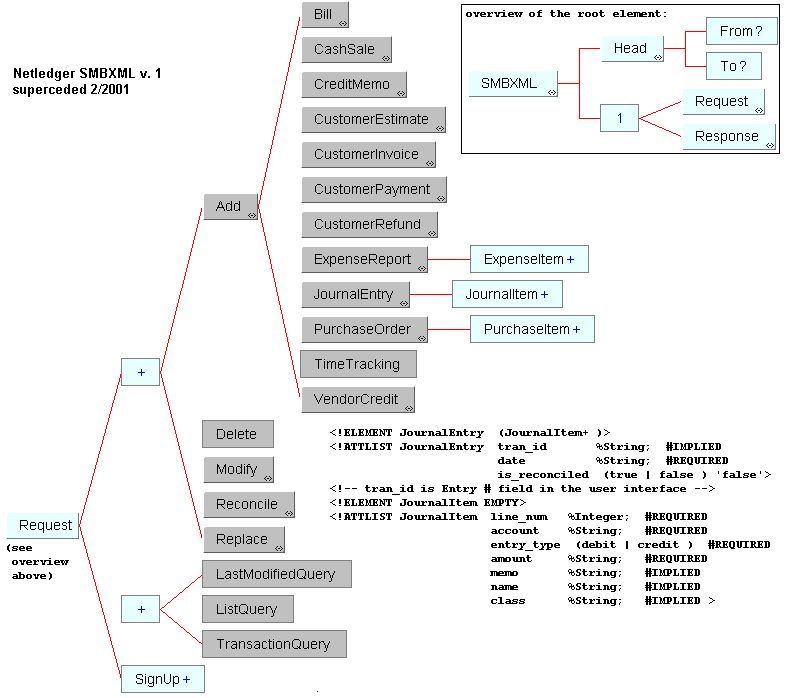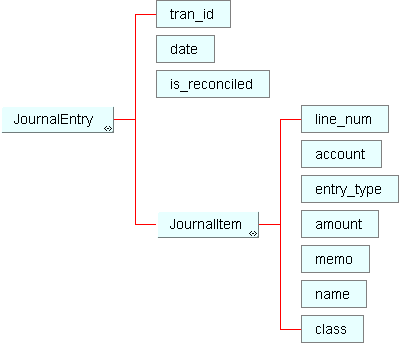Overview of Netledger's
SMBXML v.1 format for General Ledger Data
(note: SMBXML is copyright, Netledger Inc.)
SMBXML is highly significant as the first
XML vocabulary for interactions with a commercial net accounting system.
SMBXML v.1 consisted of two schemas- one is for data structures and the
other for actions. SMBXML v.2 dropped support for General
Journal but the design of SMBXML v.1 is below.
The GL portion of SMBXML is relatively
small. The GL is a classic double entry (CDEA) header/rows structure.which
has a basic classification capability by storing memo, class, and name on
each line of JournalItem. This is comparable to Quickbooks
capabilities of search or categorizing income and expense by memo, class,
and name.
SMBXML DTD represents amounts as two
fields: amount (string) and entry_type (debit/credit). It is
not determinable by the DTD to what extend processing logic is hardbound to
A=L+OE system of representation.
The Journal structure of SMBXML v.1
provides a basic potential for representing all transaction types that exist
in other NetLedger journals; however the potential for drilldown is absent
due to lack of source document reference.
NetLedger has many transaction types
(journal types). They are apparent in the full SMBXML DTD. The
SMBXML Journal Entry is not a container for any other transaction type
in the DTD. For example a request for Journal data would not contain
any payment, cash receipt, or other daily transactions; accordingly it has
little direct bearing into the goals of ARAPXML which include transporting
AR/AP entries, and GLs which store all transaction types comprehensively in
the GL.
|

